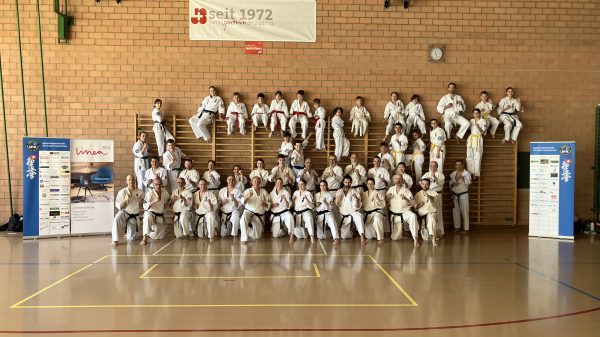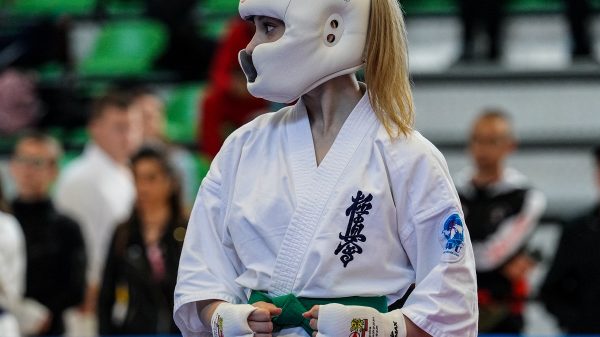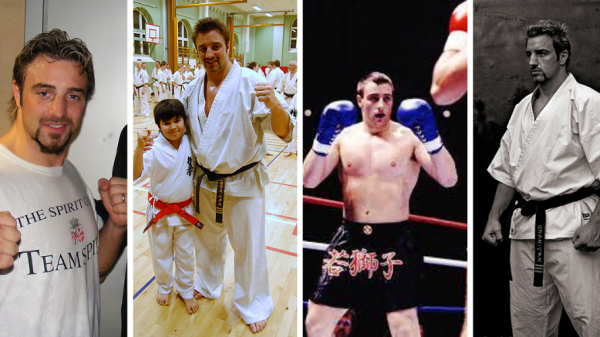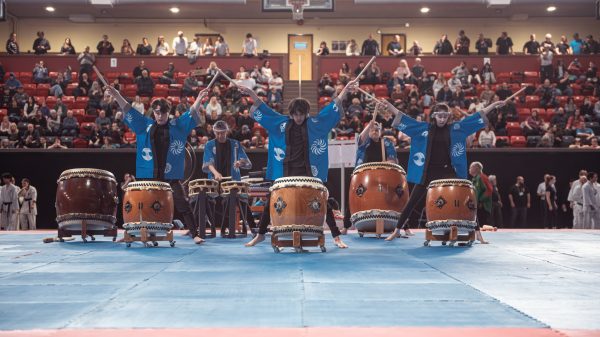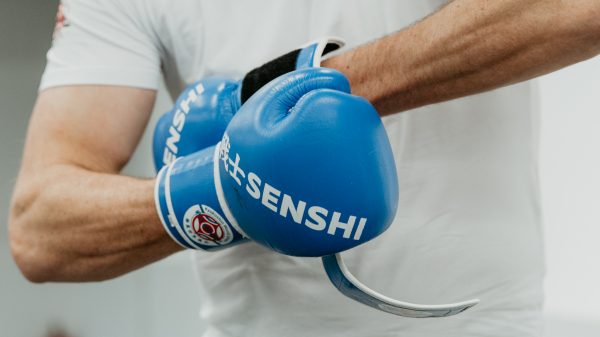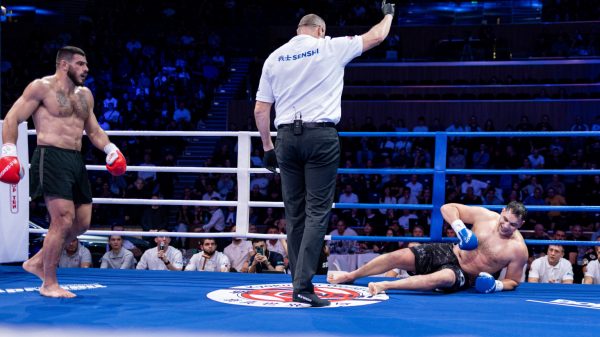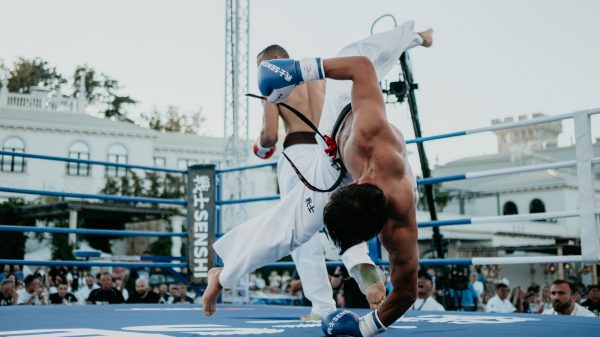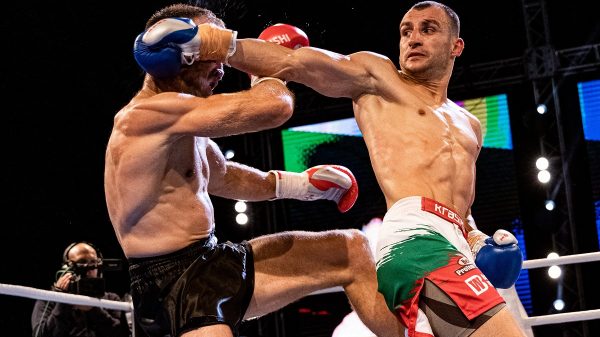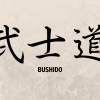By Jesse Enkamp
Have you ever been nervous before a Karate event?
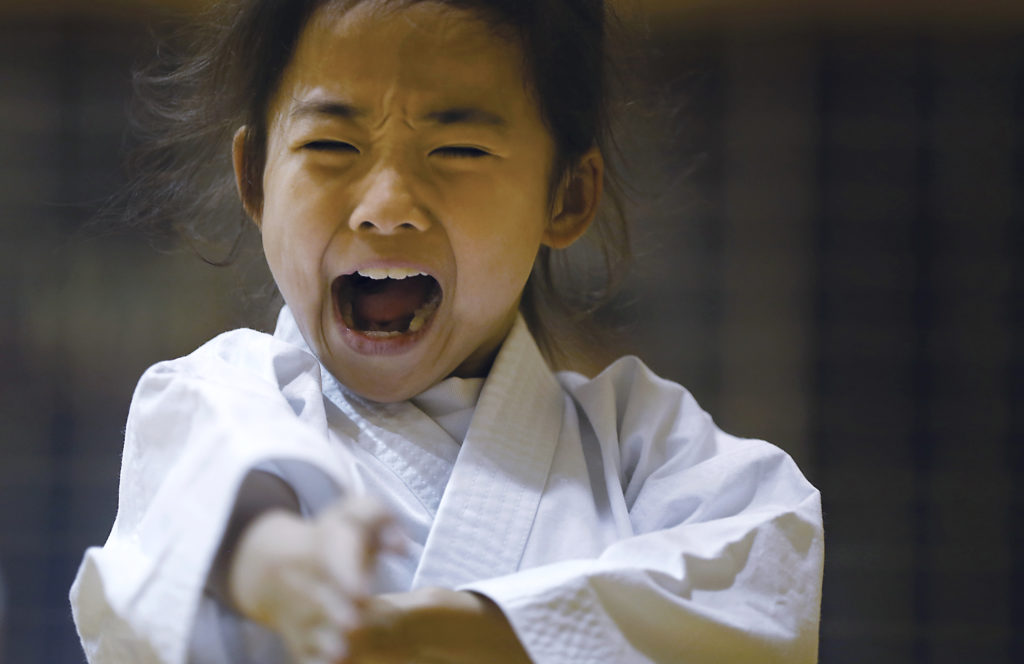
AP Photo/ Eugene Hoshiko
You are not alone!
Sleepless nights, extra training sessions and negative self-talk is experienced by everyone before competing or grading.
These events trigger stress hormones and anxiety.
But the problem is not that you’re nervous.
The problem is your approach towards it!
Today, I want to teach you how to overcome your nerves in Karate.
This is important for several reasons.
For example…
Anxiety is a common issue for anyone having to undergo grading for their next belt. The fear is similar to that of public speaking.
Besides the fear of failure, you’re also afraid of disappointing your sensei and being judged negatively by everyone watching.
The butterflies in your stomach can compel you to overtrain, just so you can feel more prepared.
Sadly, many martial art students get injured by these paranoid overtraining sessions.
This is one reason to keep your nerves in check.
Another reason is because anxiety has been shown to negatively effect both your attention span and working memory.
In other words, your nerves can undermine your performance.
Luckily, there are solutions…
How to Overcome Nerves in Karate
Before moving on to specific methods, acknowledge that you’re nervous.
Don’t try to ignore it or dismiss it.
You need to understand that it’s normal to feel this way!
Once you’ve accepted it, the next step is to deal with specific factors that causes (or worsens) your nerves.
Here are my top 5 tips:
Five Ways to Reduce or Eliminate Anxiety
#1 Positive Reinforcement (“I Belong Here”)
If you are competing or grading, it’s for a good reason. Because you belong there!
Your sensei or coach thinks you are ready for it. So, even if you don’t trust your own skills, you should have faith in the judgement of the person who put you in this position.
Tell yourself: “I belong here!”
For example, almost all instructors have the policy to grade their students only if they are ready to pass the test. They would have observed the student’s performance during regular training sessions and deemed the student ready for the next belt. So, if you are asked to go for the grading, you are ready. The test is often just a formality.
The same goes for tournaments. Your sensei wouldn’t throw you in the ring unless you could handle it. Karate instructors are very careful about this, because they know that if you have a bad experience you might quit.
So, tell yourself; “I’m here for a reason. I belong here!”
#2 Overwrite Negative Self-Talk With Humor
Negative self-talk feeds on fear.
But in 9 times out of 10, your negative self-talk is silly!
However, because your negative inner speech is continuous, your brain starts believing it. It becomes habitualized.
That’s why you need to observe your inner speech. What are you telling yourself?
Make a list of those fears. Then say them out loud to yourself in a silly voice.
Here are some examples:
I will lose my balance when I kick. Then my kiai will sound weird. And everyone is going to laugh at me!
I’m going to forget to bow. Then my foot will get caught in my pants, because they are too long. Then I’ll trip on my butt!
I’m going to forget the entire sequence in my kata. Then my sensei will pretend like he doesn’t know me!
Realize how ridiculous they all sound, especially when you say them out loud in a silly voice.
(You might have even chuckled a little.)
The point of this exercise is to psychologically reframe your negative thoughts with humor.
This will distance yourself from the anxiety, because if you’re able to laugh at yourself it makes your negative narrative less compelling.
As a result, you will perform better!
#3 Use Inoculation Theory
Inoculation Theory works in 3 steps:
First warn yourself that you’ll feel a certain way in a particular circumstance.
Then, you highlight the specific concerns you might have.
After that, give yourself information to cope with it positively.
In the case of pre-grading anxiety, this is what you could tell yourself using Inoculation Theory:
You are going to feel excessively anxious on the day of your grading. (Forewarning)
You may worry about losing your balance and falling when kicking. (Specific concern)
But you haven’t lost balance in the past two months of training. It’s unlikely to happen. (Coping information)
By forewarning yourself, you allow the brain to feel prepared to deal with the onslaught of nerves.
And, with specific solutions, it reduces your psychological stress and uncertainty.
That’s why Inoculation Theory has proved to work better than merely telling yourself not to be anxious.
Try it out!
#4 Anxious or Excited? You decide.
Okay, so your sensei thinks you are qualified to grade or compete.
But… you still feel nervous.
Of course!
That’s part of the test – to perform Karate under stress!
After all, Karate is a self-defense martial art. It is meant to prepare you to deal with attackers.
Unfortunately, being attacked spikes your adrenaline. The grading or competition triggers a tiny dose of what you’d feel when being attacked in the streets.
So, what’s the key? How do you keep a level head when facing stress?
Try to find a moment of joy. When you reframe anxiety as something “fun”, you can’t help but to relax.
You see, the human body has difficulties distinguishing between positive excitement and negative anxiety. The feeling of adrenaline rush is very similar.
The only difference is the story you tell yourself.
It’s hard to be anxious when you’re excited.
#5 Focus on Being in the Moment
Lastly, practice your Karate techniques with this zen-like twist:
When you prepare for your performance, close your eyes and focus on doing the technique with an empty mind.
If your inner critic starts judging the correctness of your movement, that’s a warning signal.
The objective is to focus on your movement – without judging what you’re doing.
You cannot perform a technique and judge it at the same time!
You have to become “one” with your Karate.
But… what if you find yourself making a mistake?
Acknowledge the mistake to yourself, then correct it. Just don’t pass any judgment.
Remember, grading or competing triggers the instincts associated with an actual attack. When you are being attacked, you simply correct yourself and keep going. It’s about survival.
Reprimanding yourself in the middle of an attack will get your injured or possibly killed.
Apply this thought process if you make a wrong move.
That’s it!
These 5 tips will help you smash your next Karate competition or grading.
Do you know other ways to deal with anxiety, fear or stress?
Leave a comment and let me know!
Thanks for reading. ?


